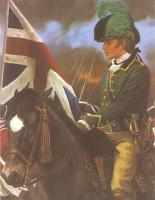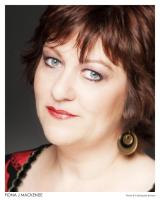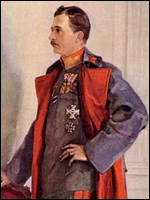0

















| Thumbs Up |
| Received: 24 Given: 0 |

Despite being a nation with a rich folk music tradition, Scotland lacked appropriate representation in this realm on Apricity, and it is insufficient to simply amalgamte it all into a giant Celtic thread.
SourceFolk music takes many forms in a broad musical tradition, although the dividing lines are not rigid, and many artists work across the boundaries. Culturally, there is a split between the Gaelic tradition and the Scots tradition.
The oldest forms of music in Scotland are theorized to be Gaelic singing and harp playing. Although much of the harp tradition was lost through extinction, the harp is being revived by contemporary players. Later, the Great Highland Bagpipe appeared on the scene. Initially, pipers played traditional pieces called 'piobaireachd', meaning 'piping' in Gaelic, which consist of a theme and a series of developments. Later, the style of 'light music,' including marches, strathspeys, reels, jigs, and hornpipes, became more popular. The British army adopted piping and spread the idea of pipe bands throughout the British Empire. Presently, piping is closely tied to band and individual competitions, although pipers are also experimenting with new possibilities for the instrument.
The piping tradition is strongly connected to Gaelic singing (some piping ornaments mimic the Gaelic consonants of the songs), stepdance (the traditional dance meters determine the rhythm of the tunes), and fiddle, which appeared in Scotland in the 17th century. These components are part of the dance music which is played across Scotland at country dances, ceilidhs, Highland balls and frequently at weddings. Group dances are performed to music provided typically by an ensemble, or dance band, which may include fiddle, bagpipe, accordion, tin whistle, cello, keyboard and percussion. Many modern Scottish dance bands are becoming more lively and innovative, with influences from other types of music (most notably jazz chord structures) becoming noticeable.
Vocal music is also popular in the Scottish musical tradition. There are ballads and laments, generally sung by a lone singer with backing, or played on traditional instruments such as harp, fiddle, accordion or bagpipes. There are many traditional folk songs, which are generally melodic, haunting or rousing. These are often very specific to certain regions, and are performed today by a burgeoning variety of folk groups. Popular songs were originally produced by music hall performers such as Harry Lauder and Will Fyffe for the stage. More modern exponents of the style have included Andy Stewart, Glen Daly, Moira Anderson, Kenneth McKellar, Calum Kennedy and the Alexander Brothers.
[YOUTUBE]vBKBI7DOLHA[/YOUTUBE]
[YOUTUBE]s06QdgzQ4Xk[/YOUTUBE]
[YOUTUBE]xXMrC54QiNA[/YOUTUBE]
[YOUTUBE]0sAitY3y9mY[/YOUTUBE]














| Thumbs Up |
| Received: 0 Given: 0 |

Some newer bands worth checking out are Scocha and Albannach- both put on great live shows. I found a couple of live clips for each online but none do either of them any justice.
But of course it's hard to beat the Corries and Gaberlunzie!
And my guilty pleasure is Dick Gaughan. He's a stinky red who needs a good washing, so I skip over his originals for the traditional numbers. I think his voice actually sounds like a bagpipe.







| Thumbs Up |
| Received: 0 Given: 0 |

There are lots of many many more 'modern' bands than those mentioned in the previous posts and they are all definitely worth a listen, in addition to Scocha and Albannach-
Capercaillie
Lau
Dochas
Runrig
Malinky
Bodega
Breabach
Unusual Suspects
Peatbog Faeries
Session A9
Anna Massie Band
just to name abut a few- try having a look at Footstompin.com to see what the latest is going on in the Scottish music scene.
if you need any help with anyting, give me a shout and I'll see what I can do.
Le durachdan
Fiona















| Thumbs Up |
| Received: 24 Given: 0 |

A waulking song:
[YOUTUBE]uauqsVMD9UU[/YOUTUBE]
SourceWaulking songs (Scots Gaelic: Òrain Luaidh) are Scottish folk songs, traditionally sung by women while waulking cloth. This practice involved a group of people beating newly woven tweed rhythmically against a table or similar surface to soften it. Simple, beat-driven songs were used to accompany the work.
A waulking session often begins with slow-paced songs, with the tempo increasing as the cloth becomes softer. As the singers work the cloth, they gradually shift it to the left so as to work it thoroughly. A tradition holds that moving the cloth counter-clockwise is unlucky.
Typically one person sings the verse, while the others join in the chorus. As with many folk music forms, the lyrics of waulking songs are not always strictly adhered to. Singers might add or leave out verses depending on the particular length and size of tweed being waulked. Verses from one song might appear in another, and at times the lead singer might improvise to include events or people known locally.
The chorus to many waulking songs consists of meaningless vocables, serving a function similar to 'tra la la' or 'hey hey hey' in other song forms.















| Thumbs Up |
| Received: 111 Given: 10 |

[YOUTUBE]http://www.youtube.com/watch?v=1uZ-p-tN8Gs[/YOUTUBE]
Regards,
Eóin.
There are currently 1 users browsing this thread. (0 members and 1 guests)
Bookmarks